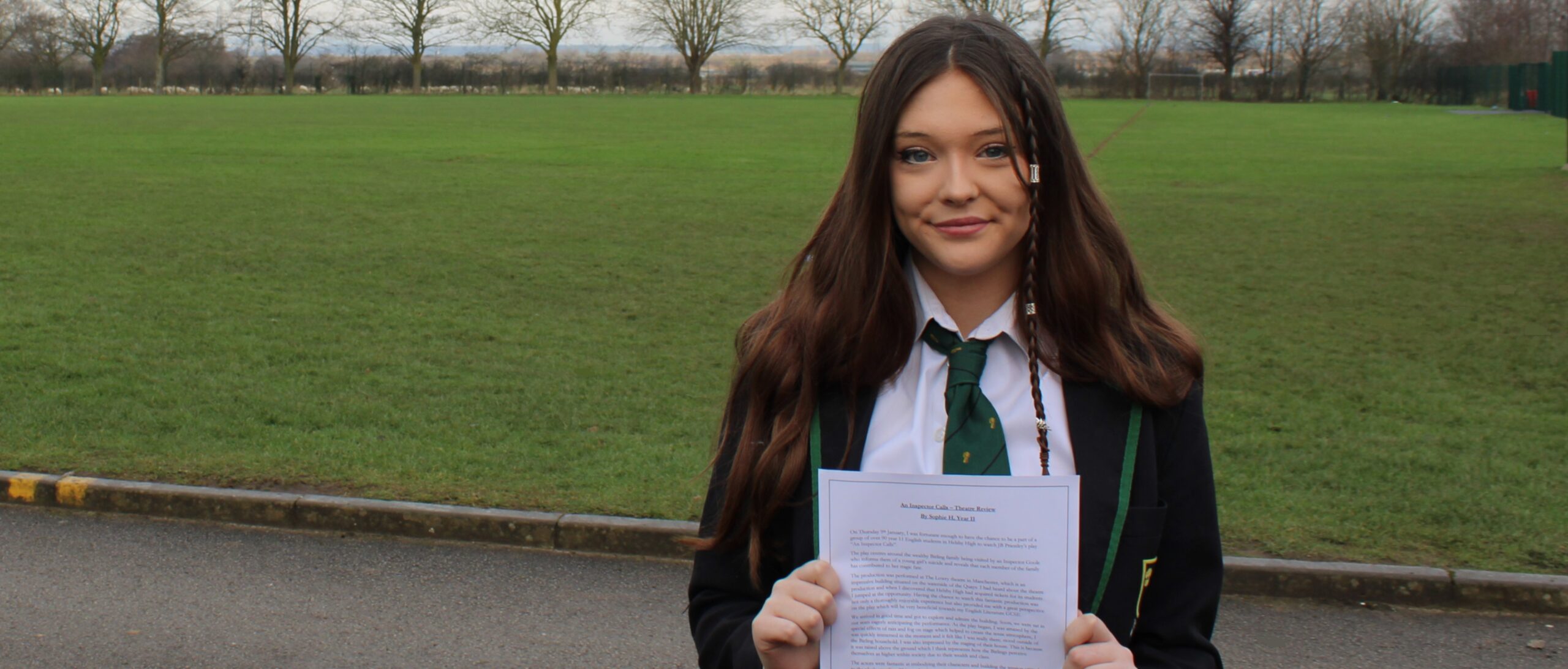On Thursday 9th January, I was fortunate enough to have the chance to be a part of a group of over 90 year 11 English students in Helsby High to watch JB Priestley’s play “An Inspector Calls”.
The play centres around the wealthy Birling family being visited by an Inspector Goole who informs them of a young girl’s death and reveals that each member of the family has contributed to her tragic fate.
The production was performed at The Lowry theatre in Manchester, which is an impressive building situated on the waterside of the Quays. I had heard about the theatre production and when I discovered that Helsby High had acquired tickets for its students I jumped at the opportunity. Having the chance to watch this fantastic production was not only a thoroughly enjoyable experience but also provided me with a great perspective on the play which will be very beneficial towards my English Literature GCSE.
We arrived in good time and got to explore and admire the building. Soon, we were sat in our seats eagerly anticipating the performance. As the play began, I was amazed by the special effects of rain and fog on stage which helped to create the tense atmosphere, I was quickly immersed in the moment and it felt like I was really there, stood outside of the Birling household. I was also impressed by the staging of their house. This is because it was raised above the ground which I think represents how the Birlings perceive themselves as higher within society due to their wealth and class.
The actors were fantastic at embodying their characters and building the tension critical to the play’s storyline. This production requires a wide range of emotions which was flawlessly executed by the performers.
My favourite part of the production was after the inspector had left and the Birlings were left to reflect upon their mistakes. This was interesting because of the generational differences between the characters and how each individual responded to the inspector’s warnings.
Overall, the production perfectly promotes Priestley’s belief in a fairer, more compassionate society. The use of physical levels for the characters changed throughout the show, beautifully demonstrating the shattering of the respectable façade of the Birling family. Although the play was written in 1945 and set in 1912, its key themes of social responsibility, class inequality and morality are still relevant to this day.
I would like to thank all of the teachers who organised and attended the trip. It was an enjoyable and memorable evening which has really helped me with my understanding of the play.
By Sophie H, Year 11



